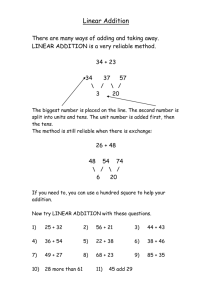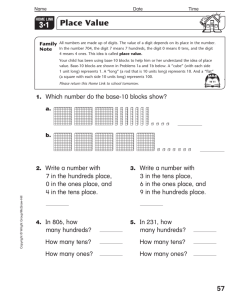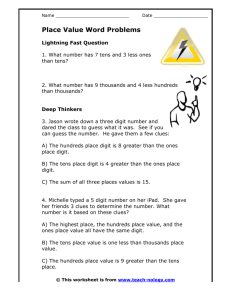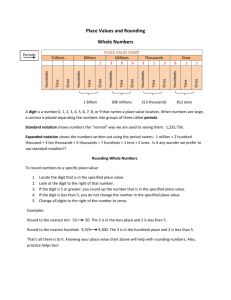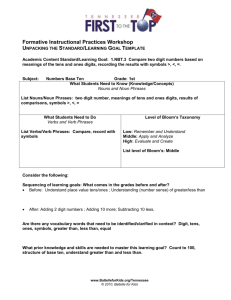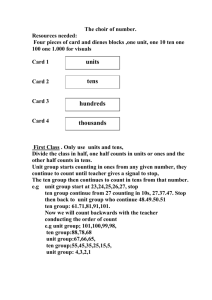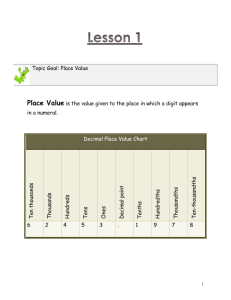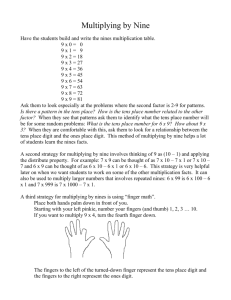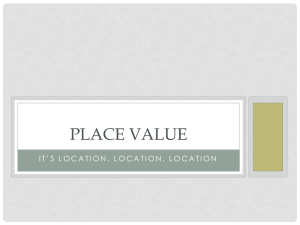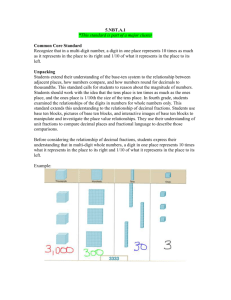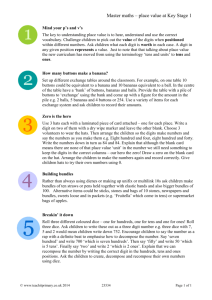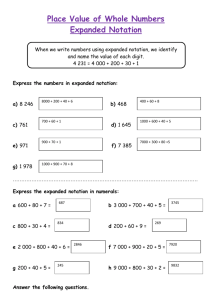Place_Value_Intro_to_Drawing
advertisement
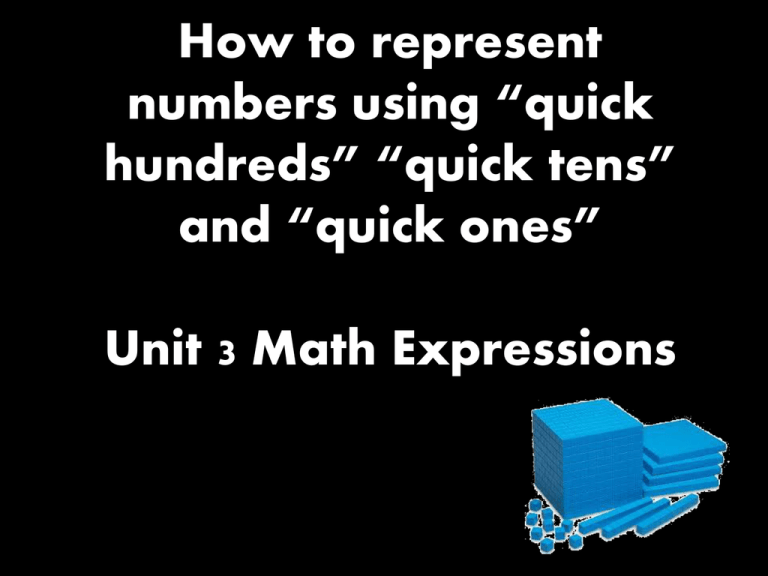
How to represent numbers using “quick hundreds” “quick tens” and “quick ones” Unit 3 Math Expressions Place value is where a digit is placed in a whole number. Each digit has a specific “value” or amount depending on where the digit is (ones’ place, tens’ place, hundreds’ place). Numbers, such as 84, have two digits. Each digit is a different place value. The left digit is the tens' place. It tells you that there are 8 tens. The last or right digit is the ones' place which is 4 in this example. Therefore, there are 8 sets of 10, plus 4 ones in the number 84. 84 tens' place ones' place Another example… 65 “6” is in the tens’ place. “5” is in the ones’ place. Let’s see a bigger number… 142 “1” is in the hundreds’ place. “4” is in the tens’ place. “2” is in the ones’ place. How could you draw different numbers with pictures? If your teacher asked you to draw the number 143- would you want to draw 143 different objects? That would take a long time! There is an easier way to do this. How many circles do you see? ONE! Each circle stands for one of something How many circles do you see now? 10 How can we show the number ten without drawing 10 circles? A ten can be shown with a simple line. Here are 100 Circles. How can I draw the number 100 without having to draw 100 of something? There are 10 groups of 10. We can draw a box around the 100 circles. Let’s show the number 65… Let’s show the number 142… 100 + 40 + 2 Your turn… You will need to decide how to best say or draw the number that is shown…
